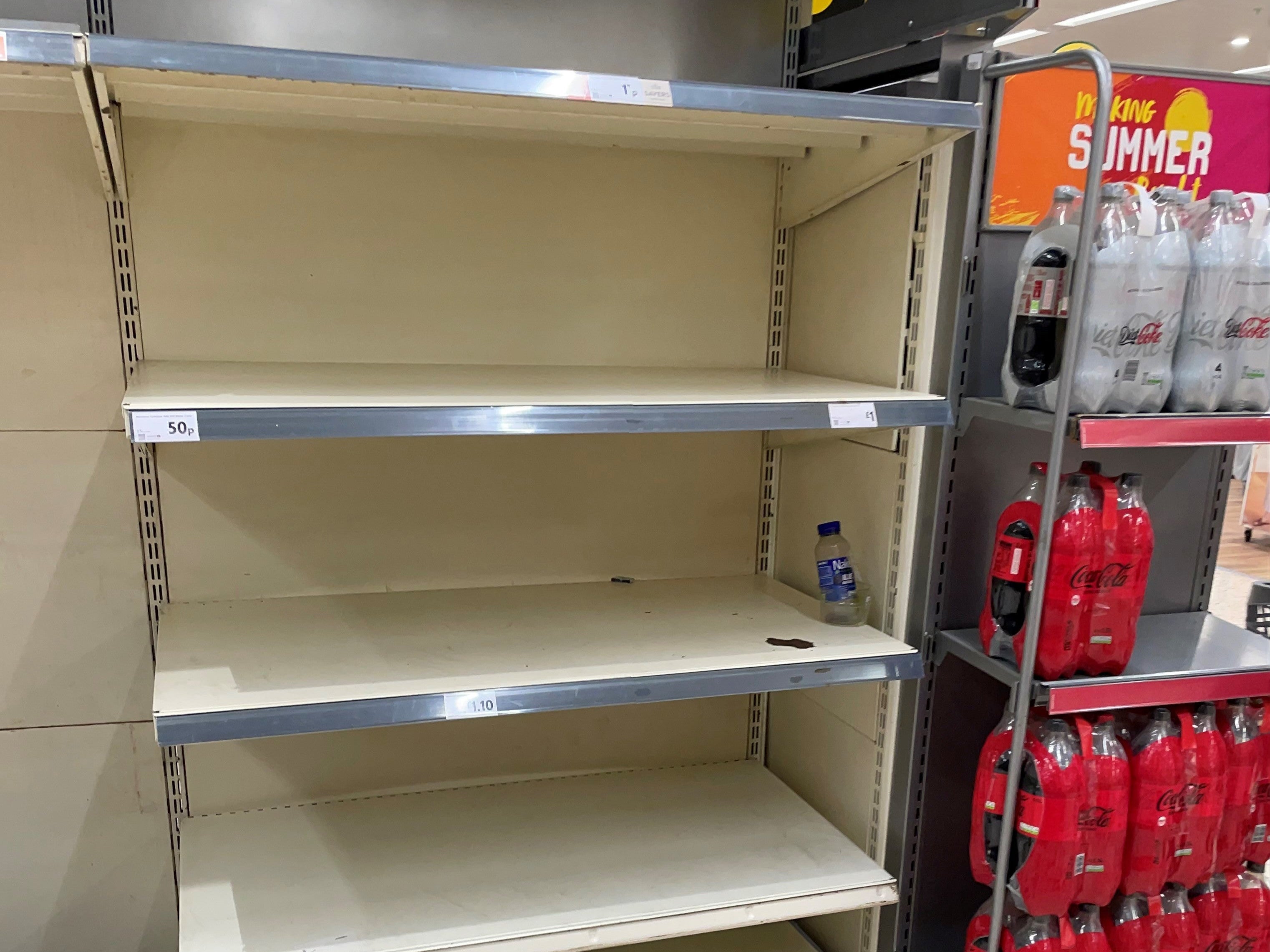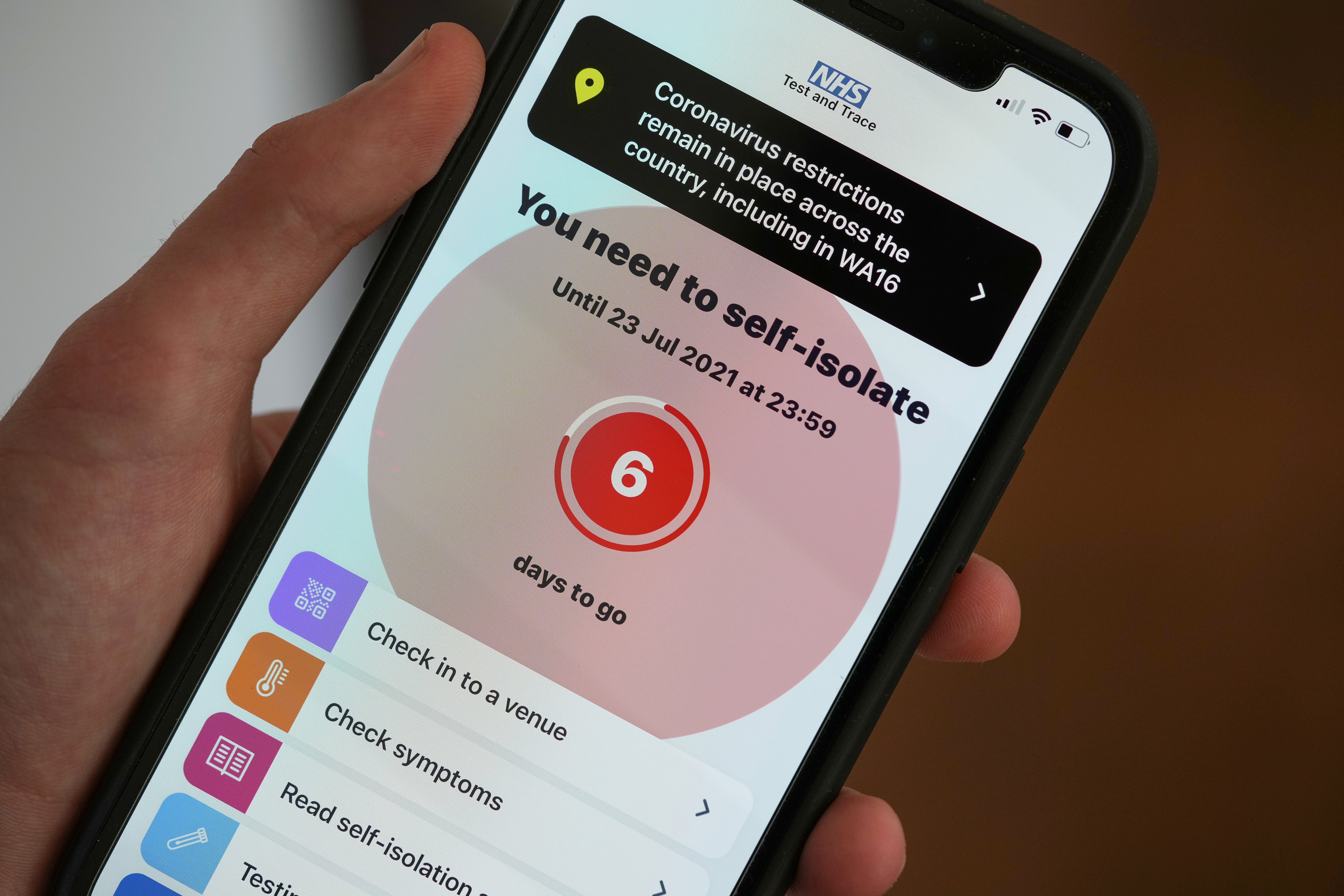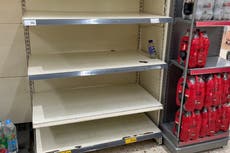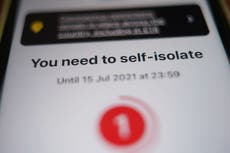Will the ‘pingdemic’ really cause food shortages?
Barren supermarket shelves have been seen across UK as staff absences prompted by app self-isolation orders rise
What is happening?
Eerie photographs of barren supermarket shelves have flooded social media this week, forcing stores to warn the public not to engage in panic buying in response to the apparent shortage of goods.
It’s like a return to the bad old days of March 2020 and the very beginning of the coronavirus pandemic in Britain, when frantic consumers raced to buy up as many toilet rolls and bottles of hand sanitiser as possible to ensure they had plentiful supplies at home in time for the apocalypse.
The reason for the latest hysteria outbreak is that - just days after the final release of social restrictions - the country finds itself mired in a “pingdemic”, an explosion of NHS Test and Trace app notifications advising workers to self-isolate for 10 days after coming into contact with someone who has tested positive for Covid-19.
With no exceptions made and the move to “contact testing” from the current “contact isolation” model still weeks away, the UK economy is being hard-hit by staff absences prompted by the quarantine orders, a problem affecting every sector, from retail and hospitality to transport, tourism and manufacturing, causing shifts to be rescheduled and services to run late or be cancelled altogether.
Supermarket shelves being left empty without sufficient staff to stack them or enough products being delivered to be placed upon them are just the most immediately visible symptom of an issue that is beginning to be felt up and down the supply chain.
Prime minister Boris Johnson appealed for calm on Thursday morning, commenting: “We’re obviously aware of the impact that is being felt by some industries and we are obviously working closely with them, specifically on supermarket shelves and food.”
"We have a robust and resilient food supply chain in the UK,” he insisted.
Earlier, business secretary Kwasi Kwarteng told Sky News that the government is “very concerned” about the situation and said that a list of critical workers who would be eligible for looser isolation rules in response to the NHS Covid app would be drawn up “very soon”.
“We’re going to announce a list of exempt workers,” he said, declining to give further details. “The list of exemptions will be quite narrow because, obviously, you have to draw the line somewhere.”
What are the supermarkets saying?
Britain’s major grocery retailers have so far described the supply shortages as “patchy” across their stores and said there was no need for customers to change their shopping habits and that they are still receiving regular deliveries.
In addition to the “pingdemic”, the sweltering heatwave is also having an impact and causing glitches, they said.
“We are sorry that we are running low on some products,” a Co-Op spokesman told the PA. “Like many retailers, we are impacted by some patchy disruption to our deliveries and store operations but we are working closely with our suppliers to get re-stocked quickly.”
“We are working hard to ensure customers can find what they need,” said a Sainsbury’s spokeswoman. “While we might not always have the exact product a customer is looking for in every store, large quantities of products are being delivered to stores daily and our colleagues are focused on getting them onto the shelves as quickly as they can.”
Tesco said that it had plenty of food and deliveries arriving across the UK every day.
But company bosses have been more forthright about the problem of staff absences brought on by the NHS Covid app.

“Our Covid cases are roughly doubling every week and the pinging level is about three-to-one of Covid cases, so we’re seeing growing exponentially,” M&S CEO Steve Rowe told The Sunday Times. “If there’s shortages, we’ll have to manage it by changing hours.”
Iceland’s chairman Richard Walker told BBC Radio 4’s Today programme that there was no shortage of food yet but was frank about the impact pinging was having on his workforce: “We’ve now got over 1,000 staff off, who’ve been pinged. That’s double the normal rates, and it’s rising at 50 per cent week-on-week.
“Our big concern is that we’ve kept all of our shops open throughout the pandemic, but now we have had to close one or two shops and reduce hours in others.
“But that could get a lot worse a lot quicker, unless the country’s system is sorted out.”
Helen Dickinson, the head of the British Retail Consortium, has meanwhile suggested rules around self-isolation could be amended for people working in food supply chains following rising levels of staff absence.
She suggested to BBC Breakfast that bringing forward the date double-vaccinated people will not need to self-isolate if they come into contact with a Covid case (currently 16 August) could be one solution.
“There are some pilots for tested release for businesses and people who get paid to test themselves and then released back into their workplace, those pilots could be extended or that could be a new system,” she said.
Why are we asking this now?
A wide number of businesses and industries have been impacted by staff shortages in recent weeks as a result of the “pingdemic” in what is clearly a growing problem for Britain’s economy far beyond the supermarket sector.
With 618,903 alerts sent out to English and Welsh citizens in the last week, restaurants, pubs and bars are reporting significant staff shortages, with up to 20 per cent of employees absent, according to UK Hospitality.
An estimated 74,000 retail workers are also currently in isolation, as are approximately 65,000 cleaning and catering staff and 39,170 employees in the transport and logistics sector.
Car manufacturers like Nissan in Sunderland, Vauxhall in Luton and Rolls Royce in Goodwood have all indicated they may have to rethink shift patterns in response to mass absences, which will in turn cut productivity and cause unavoidable delays.
Transport for London was likewise recently forced to close the Metropolitan Line on the Underground network as other rail and bus services report cancellations.

The British Meat Processors Association has warned that production lines have already started to fail due to the number of workers self-isolating over coronavirus contacts.
CEO Nick Allen told the Today programme: “There’s an air of despondency creeping through the industry really. Until now we’ve managed to keep the food supply chain running but there’s a sense of we’re starting to fail on that front.”
Asked if the UK’s supply chains were stalling, he answered: “They are. It’s happening already. We’re starting to see that at retail level and in restaurants - everyone is struggling to get things out really.”
Perhaps most worryingly of all, NHS England is reporting a 60 per cent rise in absences over the past 10 days to 13,771, making it all the harder to beat back the threat from Covid.
Without action from the government, the “summer of chaos” Sir Keir Starmer has accused Mr Johnson of presiding over will soon come to pass.
Join our commenting forum
Join thought-provoking conversations, follow other Independent readers and see their replies
Comments



Bookmark popover
Removed from bookmarks